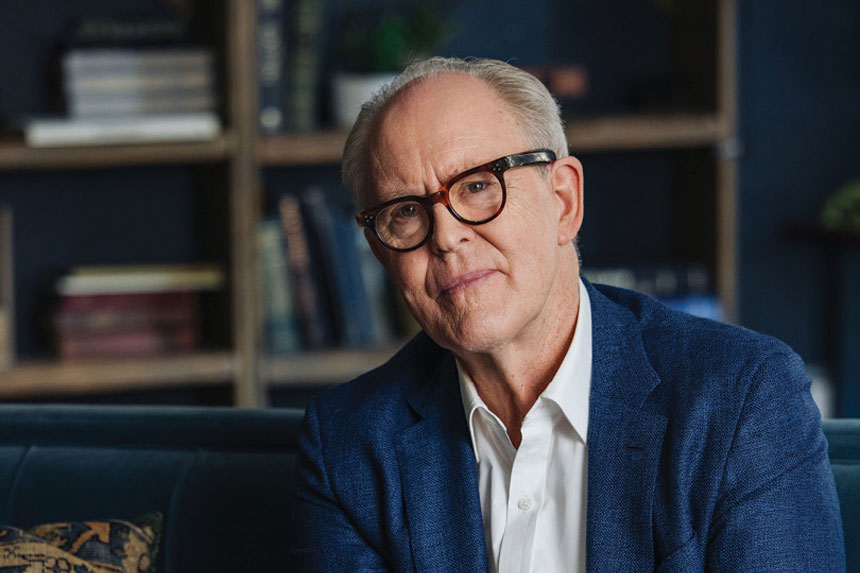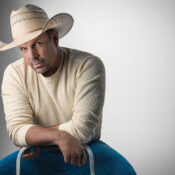John Lithgow is in high demand in Hollywood, but there’s a problem: “I never get enough time to paint,” he says. “I’m too busy acting!” Aside from his career on stage and screen, he has long been an artist and champion of arts education, so when he got the chance to go back to school for PBS, he couldn’t pass up the opportunity to share his wisdom with a younger generation.
Art Happens Here with John Lithgow follows the 78-year-old through classes in ceramics, printmaking, jazz singing, and dance — not as a teacher, but as a student, interacting with and learning from his fresh-faced classmates. Like with everything he does, Lithgow brings undeniable curiosity, enthusiasm, and dedication to the project. His natural talent is his thirst for artistic adventures. His teachers would be proud.
Jeanne Wolf: Why is arts education important to you?
John Lithgow: I had a dozen memorable and marvelous teachers. Growing up, I wanted to be an artist. That had a lot to do with my art teachers in 9th and 10th grade. I began to understand that electric moment that brings together great teachers and willing students in the arts. I should also give credit to my father, who worked in regional theater as a producer, theater manager, and actor. He was also a very good teacher.
I think it’s just appalling now how our education system provides less emphasis on the arts. When a school district is confronted with financial issues, the first thing to go is the arts programs, even before sports. Providing more opportunities for kids to get involved in the arts is not only good for them, it will make them more eager to come to school, and to stay in school.
JW: How is Art Happens Here an expression of that belief?
JL: What’s interesting is that the kids I worked with in the arts programs became my teachers. They were amazing, especially the ones who were helping with singing and dancing. They were very kind when I danced; it was extraordinarily exhausting. I was perfectly willing to look foolish and inept. They really did adopt me.
I’ve worked in support of art education in schools. I’ve spoken to parents, administrators, and potential funders. I suggest they “think like an actor.” It means playing a role. It requires you to put yourself inside the mind of another human being. The character I am asking each of them to inhabit was themselves when they were young. It will make them appreciate what I was experiencing with the kids in the show, and maybe better understand the value of art as a tool for learning.
JW: And that love of the arts has stayed with you all this time.
JL: As I said, I wanted to be an artist, and I was quite serious about it when I was young. Now, it’s much more a hobby. I do my own Christmas cards every year. I do a drawing or a painting at the wrap of every film or on opening night of every play. I nurse a faraway fantasy of just either retiring or taking a sabbatical from acting to do nothing but painting for a year, but I’m sure I’ll never do it.
Jeanne Wolf is the Post’s West Coast editor
This article is featured in the May/June 2024 issue of The Saturday Evening Post. Subscribe to the magazine for more art, inspiring stories, fiction, humor, and features from our archives.
Become a Saturday Evening Post member and enjoy unlimited access. Subscribe now



